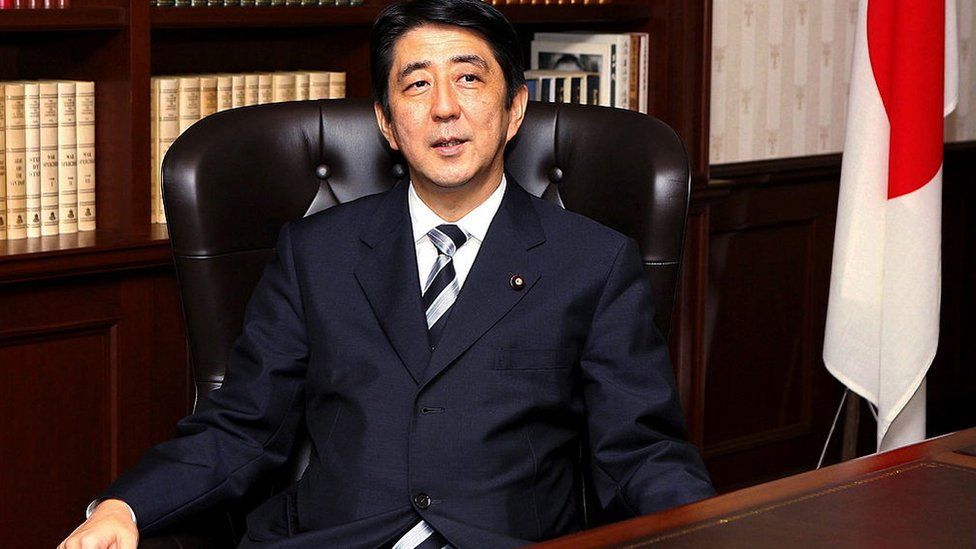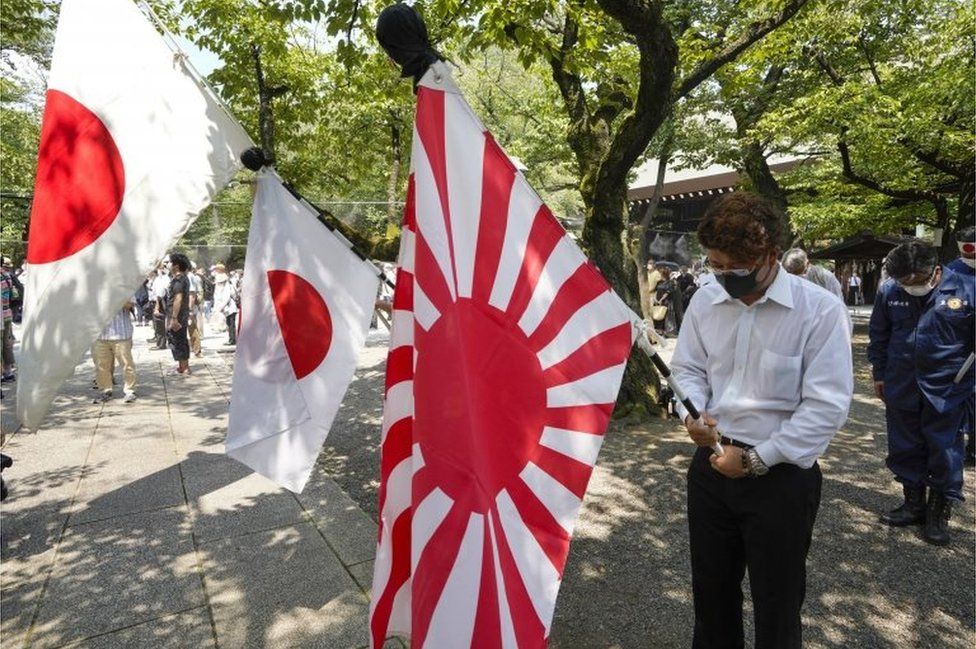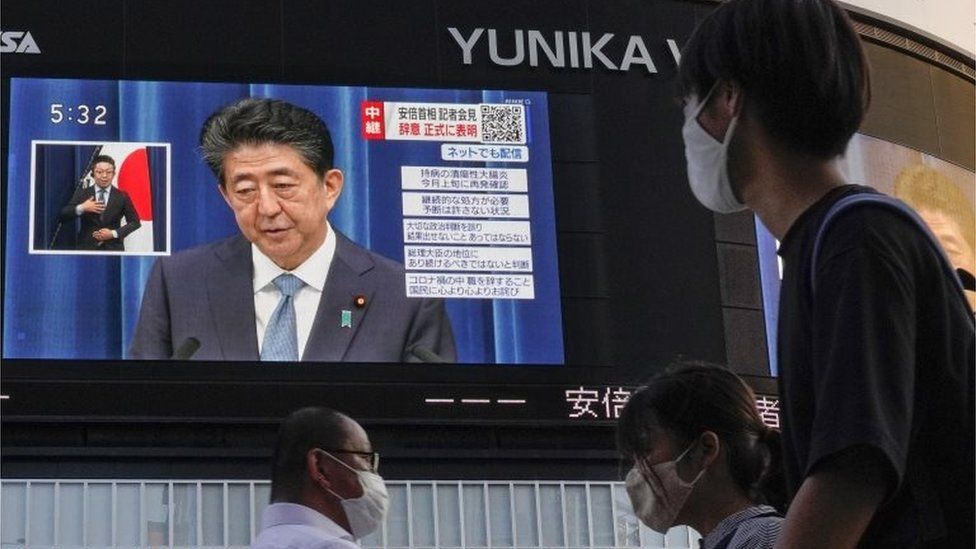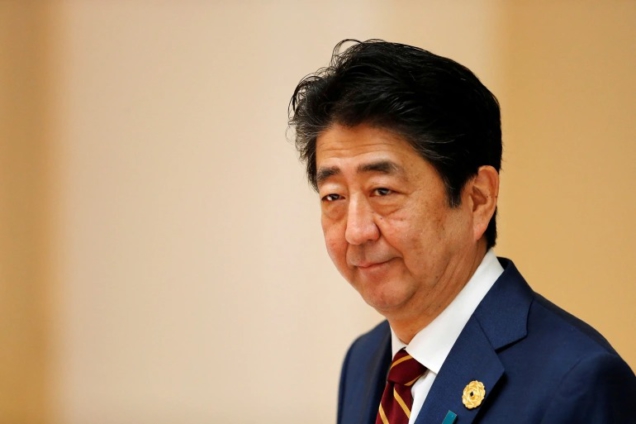Shinzo Abe, Japan's longest-serving prime minister, was known for his hawkish foreign policy and a signature economic strategy that popularly came to be known as "Abenomics".
A conservative nationalist by most descriptions, the 67-year-old Abe led the Liberal Democratic Party (LDP) to victory twice.
His first stint as prime minister was brief - for a little over a year starting in 2006 - and controversial.
But he made a surprising political comeback in 2012, and stayed in power until 2020 when he resigned for health reasons.
Japan was in a recession when he began his second term and his economic policy - built on monetary easing, fiscal stimulus and structural reforms - was credited with helping growth return to a faltering economy.
He also oversaw Japan's recovery from a massive earthquake and tsunami in Tohoku in 2011, which killed nearly 20,000 people and led to a meltdown of the Fukushima nuclear reactors.
He stepped down in 2020 after weeks of speculation, revealing that he had suffered a relapse of ulcerative colitis. The intestinal disease had led to his resignation in 2007 too.
He was succeeded by close party ally Yoshihide Suga, but was still seen as a powerful figure in Japanese politics.
Rise to power
As the son of former foreign minister Shintaro Abe and grandson of former prime Minister Nobusuke Kishi, Abe belonged to political royalty.
He was first elected to parliament in 1993, and in 2005 he became a cabinet member when then prime minister Junichiro Koizumi appointed him to the high-profile role of chief cabinet secretary.
His rise to the top came swiftly as he became Japan's youngest post-war prime minister in 2006.
But a series of scandals - including the government's loss of pension records, affecting about 50 million claims - his his administration hard.

A heavy loss for the LDP followed in upper house elections in July 2007, and in September of that year he resigned due to ulcerative colitis.
But then in 2012, Abe returned as prime minister, saying that he had overcome the disease with the help of medication.
He was subsequently re-elected in 2014 and 2017, becoming Japan's longest-serving prime minister.
His popularity fluctuated, but he remained largely unchallenged due to his influence in the LDP, which amended its rules to allow him to serve a third term as party leader.
A controversial nationalist
Abe was known for his hawkish stance on defence and foreign policy, and has long sought to amend Japan's pacifist post-war constitution.
Conservatives see the constitution - which was drafted by the US - as a reminder of the humiliating defeat of Japanese troops in World War Two.
His nationalist views have often raised tensions with China and South Korea, particularly after his 2013 visit to Tokyo's Yasukuni shrine, a controversial site linked to Japan's militarism before and during World War Two.
His repeated visits to the shrine also irked left-wing factions in Japan, who viewed it as an attempt by Abe to whitewash Japanese atrocities during the war.

In 2015, he pushed for the right to collective self-defence, enabling Japan to mobilise troops overseas to defend itself and allies under attack.
Despite opposition from Japan's neighbours and even the Japanese public, Japan's parliament approved this controversial change.
His larger goal of revising the constitution to formally recognise Japan's military remains unfulfilled, and continues to be a divisive topic in the country.
He was also unable to secure the return of what Japan refers to as the Northern Territories - a chain of disputed islands off the northern prefecture of Hokkaido that are claimed by both Japan and Russia.
Abe's rapport with former US president Donald Trump was credited with shielding Japan from crippling US-led trade tariffs, and having to fork out more money to support the presence of US troops in the country.
Tackling economy and Covid-19
Abe's signature economic policy - known as Abenomics - was seen as helping it return to growth during his first term.
This included negative short term interest rates that made it cheaper for consumers and companies to borrow money and spend, increasing government spending on infrastructure and more financial incentives such as tax breaks, and reforms that sought to add more women into the workforce, and allow more migrants in to ease labour pressures and kickstart growth.
But his efforts faced a major challenge when the country again went into recession in the spring of 2020. That and other slowdowns raised questions about the effectiveness of his approach.

Abe's popularity was further hit by concerns over his handling of the Covid-19 pandemic.
Critics believe his campaigns aimed at boosting domestic tourism contributed to a resurgence of infections.
They also say other promises of Abenomics - such as empowering women in the workforce, tackling nepotism and changing unhealthy work cultures - remained unfulfilled.
Internationally, he has been credited with holding the Trans-Pacific Partnership - a massive trade agreement between 11 countries - together, following an abrupt withdrawal by the US under Mr Trump's administration.
Resignation and death
Abe's resignation announcement on 28 August led to an internal struggle among LDP factions, because he declined to name a successor.
He was eventually succeeded by Yoshihide Suga, a veteran politician and long-time cabinet member.
But Abe continued to hold sway over domestic politics in Japan, even after Suga was replaced by current prime minister Fumio Kishida.
On 8 July, Abe was in the southern city of Nara campaigning on behalf of a candidate running for Japan's upper house.
He was delivering a speech when he was shot by a gunman - a 41-year-old who is believed to be former member of the Self-Defense Force, Japan's equivalent of a navy.
Abe was conscious when taken to hospital, but died later from his injuries.
Latest Stories
-
Court remands unemployed man over theft of ECG property
4 mins -
Election security rests solely with the police – Central Regional Police Command
6 mins -
NCCE engages political youth activists at Kumbungu on tolerance
7 mins -
‘In Mahama’s era students lacked chalk, but are now receiving tablets’ – Bawumia
17 mins -
Project commissioning not a ploy to attract votes – Oppong Nkrumah
18 mins -
CBG records GH¢1bn revenue in Q3
21 mins -
Mahama vows to create an agro-processing zone in Afram Plains
35 mins -
Political parties should plan for losses, not just wins – IGP advises
36 mins -
524 Diasporan Africans granted Ghanaian citizenship in ceremony
38 mins -
Mahama urges Afram Plains North residents to avoid ‘skirt and blouse’ voting
40 mins -
Asantehene receives more 19th century gold ornament and regalia
47 mins -
Hohoe Ghana Blind Union organises training for members ahead of Election 2024
53 mins -
Alan Kyerematen reveals his future plans for Ghanaian Health professionals
54 mins -
AAIN empowers women and small enterprises in Upper East Region through SHINE project
55 mins -
Akufo-Addo leads nationwide commissioning of 80 educational projects
1 hour

